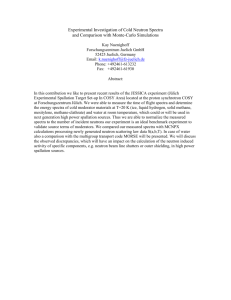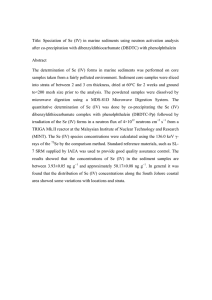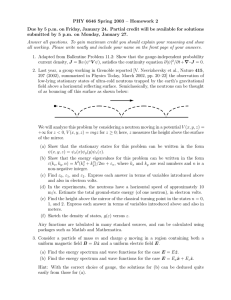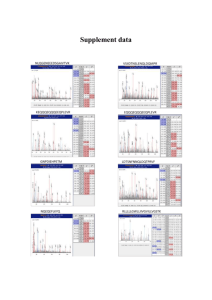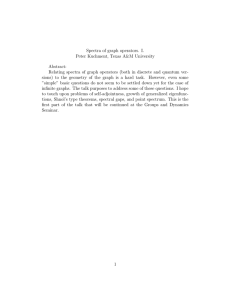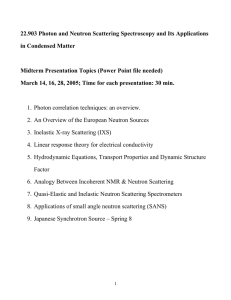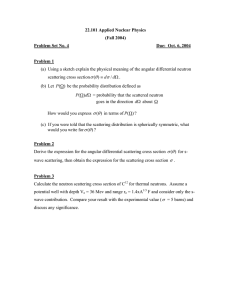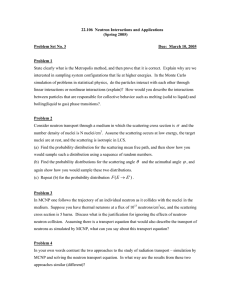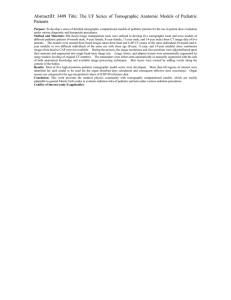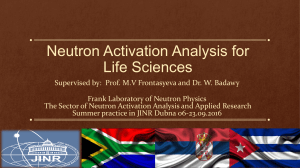AbstractID: 1170 Title: Cancer Diagnosis using Neutron Scattering Analysis of... Here we report on the development of a new molecular...
advertisement
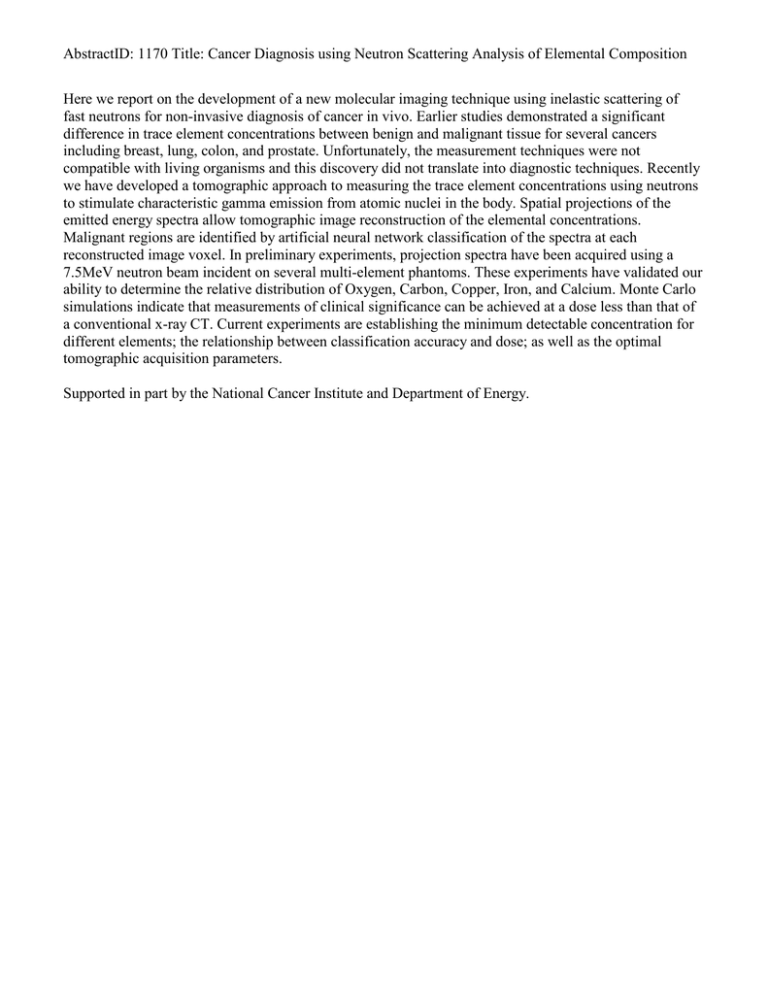
AbstractID: 1170 Title: Cancer Diagnosis using Neutron Scattering Analysis of Elemental Composition Here we report on the development of a new molecular imaging technique using inelastic scattering of fast neutrons for non-invasive diagnosis of cancer in vivo. Earlier studies demonstrated a significant difference in trace element concentrations between benign and malignant tissue for several cancers including breast, lung, colon, and prostate. Unfortunately, the measurement techniques were not compatible with living organisms and this discovery did not translate into diagnostic techniques. Recently we have developed a tomographic approach to measuring the trace element concentrations using neutrons to stimulate characteristic gamma emission from atomic nuclei in the body. Spatial projections of the emitted energy spectra allow tomographic image reconstruction of the elemental concentrations. Malignant regions are identified by artificial neural network classification of the spectra at each reconstructed image voxel. In preliminary experiments, projection spectra have been acquired using a 7.5MeV neutron beam incident on several multi-element phantoms. These experiments have validated our ability to determine the relative distribution of Oxygen, Carbon, Copper, Iron, and Calcium. Monte Carlo simulations indicate that measurements of clinical significance can be achieved at a dose less than that of a conventional x-ray CT. Current experiments are establishing the minimum detectable concentration for different elements; the relationship between classification accuracy and dose; as well as the optimal tomographic acquisition parameters. Supported in part by the National Cancer Institute and Department of Energy.
